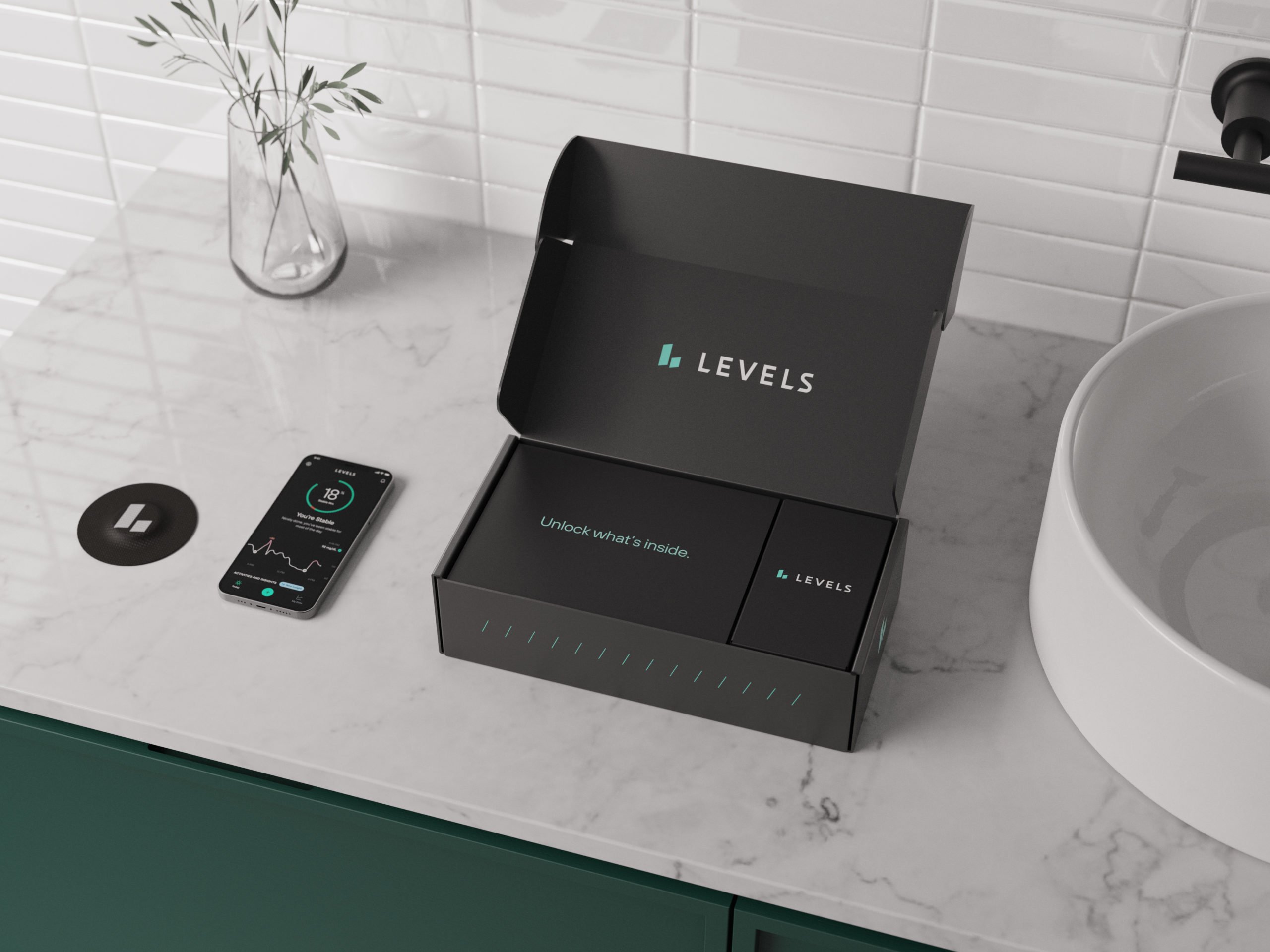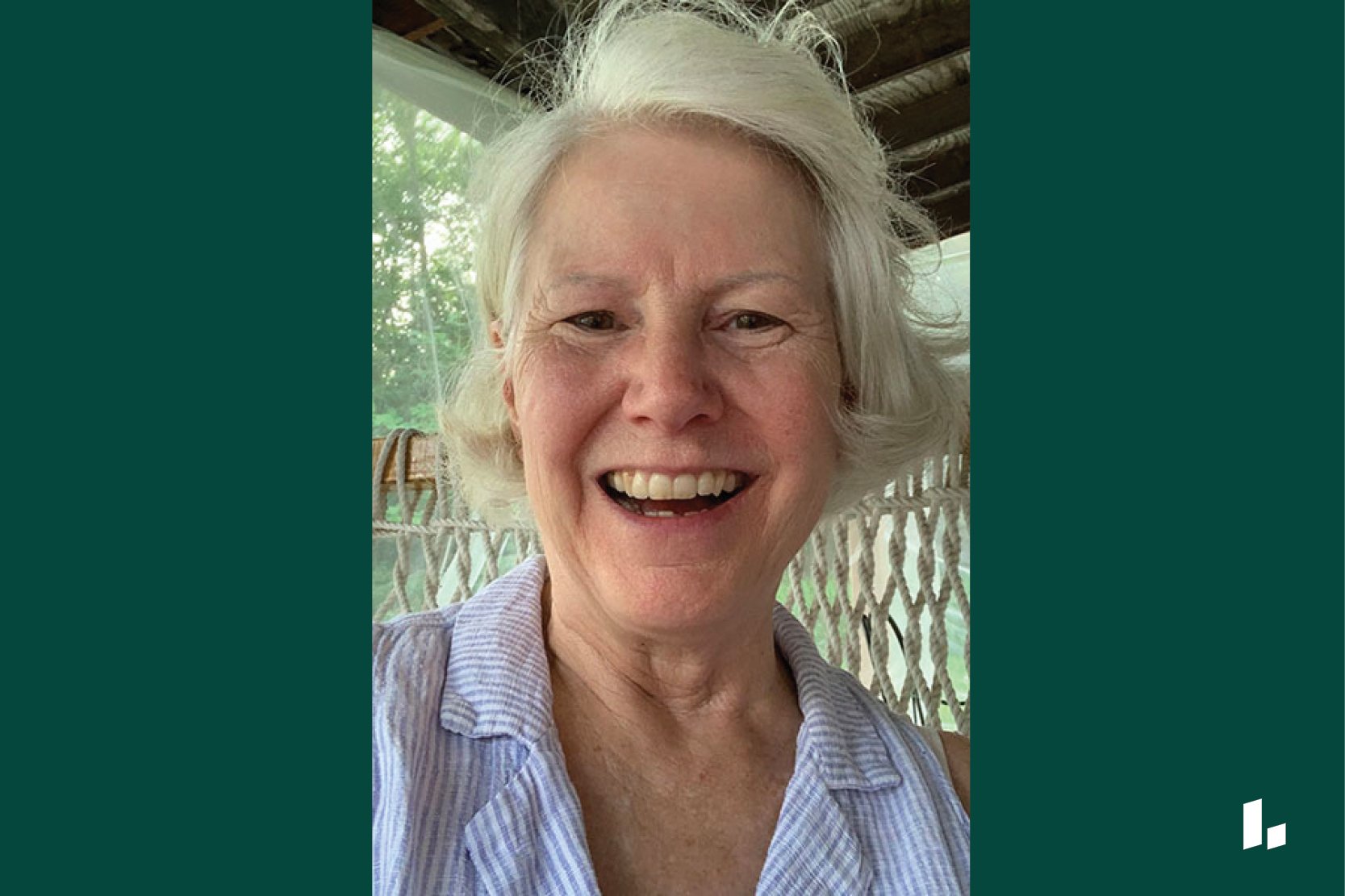“Many older people view their bodies as a mystery, but that’s far from the case if you have real-time objective data,” says Shelley, a 73-year-old retired psychologist and Levels customer. “Having a single non-judgemental number about your metabolic health and making directionally positive lifestyle changes that minimize your risk for metabolic dysfunction or the variety of chronic diseases like diabetes, dementia, and heart disease is empowering.”
“Many older people view their bodies as a mystery, but that’s far from the case if you have real-time objective data.”
Shelley borrows from decades of health and wellness experiences, including a unique perspective of how the United States’ approach to nutrition has changed over the past few decades. Shelley found an element that seemed to repeat itself in her patients– poor diets.
“Lousy diets, in terms of massive amounts of consumption of unhealthy and processed foods, and sodas, and otherwise unhealthy stuff were just wreaking havoc on people’s emotional balance and their own sense of wellbeing,” comments Shelley. “I paid close attention to that for myself personally for many of the same reasons.”
By building her metabolic awareness with objective data, Shelley feels a sense of empowerment on her overall wellbeing.
“We all make choices, and an individual needs to take responsibility for their own choices,” says Shelley. “Healthy eating permeates every culture, and objective data allows people to bring their diverse background and traditional foods under the microscope of whether what they’re eating is good for them or not.”
Shelley is adamant that anyone can benefit from quantifying their diet, but particularly those individuals fortunate enough to be in her age range.
“You get more vulnerable as you get older, and the tendency is to move towards metabolic dysfunction,” claims Shelley. “Diabetes is something that makes people feel they have no control over themselves. Having a direct connection between what you do and what’s happening in your body is crucial information that isn’t usually easily accessible. Before, unless you’re prescribed a continuous glucose monitor, which usually only happens if you’re a full-blown diabetic who doesn’t respond to Metformin and needs insulin injections, you’re likely unaware of the severity of your condition.”
Many people in Shelley’s age range are either in the diabetic category or actively avoiding it.
“The biggest difference in my nutrition was viewing what I eat through the lens of an overall holistic lifestyle rather than a specific diet, or series of diets. I began to appreciate the significance of the effect of what I’m eating on my overall health and wellbeing. The feedback from Levels gave me an objective distance from my own experience.”
“This data shows you how you respond to any particular food, which is powerful information,” says Shelley. “Even if the American Diabetes Association publishes an article that Food A is great, it could be terrible for you. Some foods are truly much harder for your body to make good use of than other foods, so you need to test what works for you.”
Shelley advises that although this new technology might seem daunting, using something like Levels is extremely intuitive because it’s closely tied with how you feel.
“I didn’t grow up with computers, so I don’t have an intuitive sense of how to use new technology other people might,” comments Shelley. “I intuitively adjusted by correlating how I felt with the data. For example, if I felt poorly and my glucose levels were high on the app, I made a stronger mental connection with that particular meal or activity. Maybe some people can just do that without objective feedback, but I needed that data to help me understand the sensations on a more intimate level.”
Shelley’s Insights on Metabolic Health
Shelley started using Levels to further solidify her transition to a whole food plant-based diet and away from processed foods.
“I recognize that what works for me won’t always work for everyone, but the immediacy of the feedback from Levels helped me get a better understanding of how a whole food plant-based diet impacts me on a metabolic level,” says Shelley. “I don’t really worry about my weight anymore or counting calories– I can just check the Levels app to get a better understanding of where my blood glucose is.”
Shelley found a way to analyze what works best for her, as well as what doesn’t.
“All my life, I’ve had some issues with food,” says Shelley, “I’ve been sensitive to processed foods my entire life, and this data has helped me break relationships with unhealthy foods. It’s very hard for your body to understand the long-term benefits of something healthy like broccoli versus processed foods, when the latter category is engineered to be unnaturally delicious. Processed foods also don’t have that sense of satiety, so you keep coming back for more.”
Having objective data at her disposal, Shelley states, has given her tremendous freedom from responding to the siren call of processed foods.
“I don’t mean to be so hard on processed foods, but it is a business, and the only way that industry can make money is if we eat a whole heck of a lot of food we don’t need,” says Shelley. “People’s careers and livelihoods are at stake to get you to eat as much processed food as possible, and that’s a major reason so many people in this country have detrimental eating habits.”
Shelley views the most significant change in her metabolic awareness journey as being primarily mental.
“The biggest difference in my nutrition was viewing what I eat through the lens of an overall holistic lifestyle rather than a specific diet, or series of diets,” says Shelley. “ Over the last few years, I began to appreciate the significance of the effect of what you’re eating on my overall health and wellbeing. The feedback from Levels gave me an objective distance from my own experience. For example, I became acutely aware of brain fog, which can be very tricky to identify if you’re currently in the middle of experiencing it.”
Today, Shelley views herself as the most health-conscious she’s ever been, and she credits having visualized feedback between how her lifestyle and nutrition affect glucose levels, which directly affect her overall well-being.
“I really wish I had Levels at an earlier time in my life, because if you want to change for the better, you need to change your habits, and that takes time,” says Shelley. It would have been easier to make any lifestyle changes if I could have just looked at an app that told me whether or not what I was eating was actually good for me.”
Patience with yourself during dietary transitions, Shelley notes, is the most critical component of long-term success.
“A life transition is more than just taking simple actions,” comments Shelley. “Eating healthier isn’t just about putting a different type or quantity of food in your mouth. It’s about allowing your mind and body to adjust to whatever you’re doing, and these things take time. The short-term can be deceptive – it’s the long-term that really matters.”
“When we consciously try to respect our body’s efforts to keep us alive and healthy, the body tends to blossom. There’s a positive reciprocity, rather than a negative one if we neglect our body.”
Learn more:
Final Thoughts – Building America’s Metabolic Health
Shelley encourages anyone interested in their personal wellness to try reverse-engineering what a perfect optimal diet means for them.
“There is no experience like first-hand experience,” says Shelley. “Know your actual feelings, and study how the food you eat impacts them with objective data. That’s the only way you can figure out what works best for you. One of my grandmothers lived to be into her 90s, and she was active in her old age. We’re lucky to have some technology to underpin our decisions today so we have feedback on whether what we’re doing is actually good for us or not.”
Shelley believes that metabolic health starts on an individual level, and she is hopeful that the effects of metabolic understanding may one day contribute to something positive for our country as a whole.
“We’re a sick nation, and our nutritional ignorance plays a huge role,” says Shelley. “Nutrition is more than just branding and saying something like, ‘I’m whole food plant-based, I’m carnivore, I’m paleo’ or whatever. We need to focus on how our body responds and how we feel, especially over the long term. Ask the questions that matter. What do I feel like when I’m at my healthiest self and how do I get there? Having immediate feedback and data enables individuals to carve a path to perfect personalized nutrition on their own.”
Mixed and skewed views on nutrition, Shelley claims, cascade into generational metabolic dysfunction.
“If someone is living with a lower quality of life because they’re raised into metabolic dysfunction, they don’t know what a higher-quality of life feels like, and that’s tragic,” notes Shelley. “Not knowing what to eat isn’t your fault, but it is your duty to fix it, because you are primarily responsible for yourself. Unhealthy lifestyles are normalized, and pills and surgeries are viewed as a standard solution to health issues, and that’s just not good enough. Metabolic dysfunction is not only diabetes– it contributes to heart disease and a variety of other chronic diseases. It costs us in human happiness and a staggering amount in healthcare bills.”
Only 12% of Americans meet the criteria of being metabolically healthy.
“We need to take ownership of our own health, because, clearly, it’s not going to come from the top down. If we can access our metabolic information at a reasonable cost, we may see enormous benefits long-term. I have a great deal of confidence in Levels and the integrity of its program, because it is based on data and building the underlying awareness that necessitates change.”
For now, Shelley is focused on making the most out of her metabolic health learnings to optimize her life.
“People around me joke that I’m getting obsessed with the Levels technology, but I don’t feel that way at all,” laughs Shelley. “It’s information for me to do with whatever I want and use it wherever I want. I don’t feel particularly compulsive about it. Minor adjustments can make an enormous difference that’s often hard to believe without objective evidence to give you that validation.”









